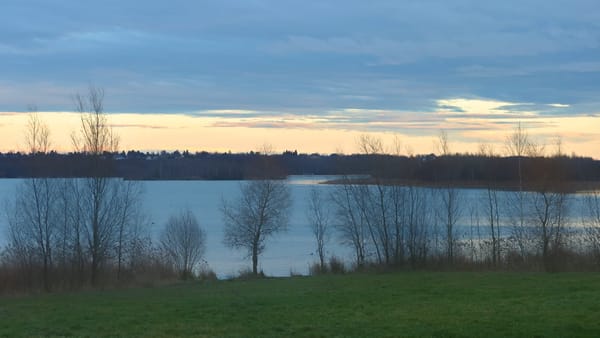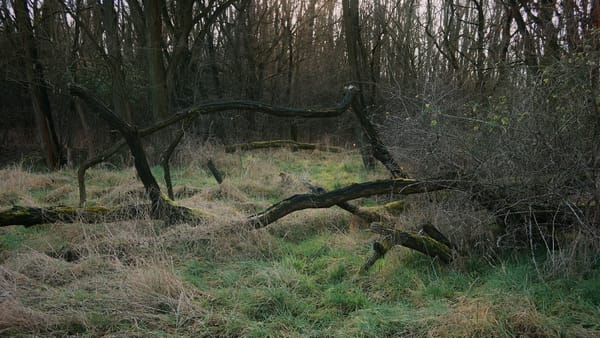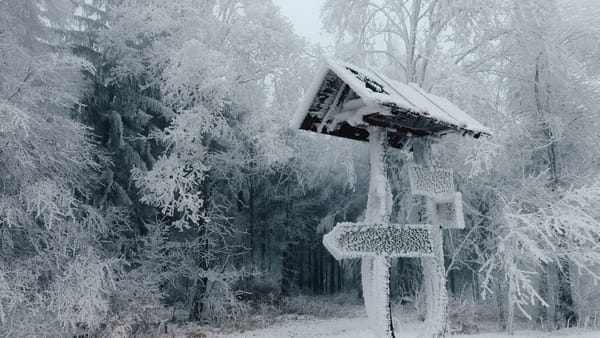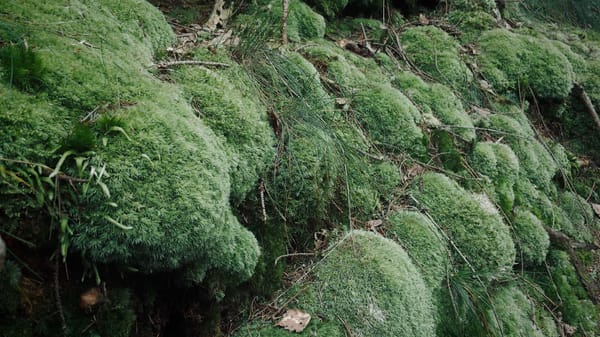Interview with Sun People
Producer, radio host, label a&r and local community counsellor Sun People on his recent After The End EP and what comes next.
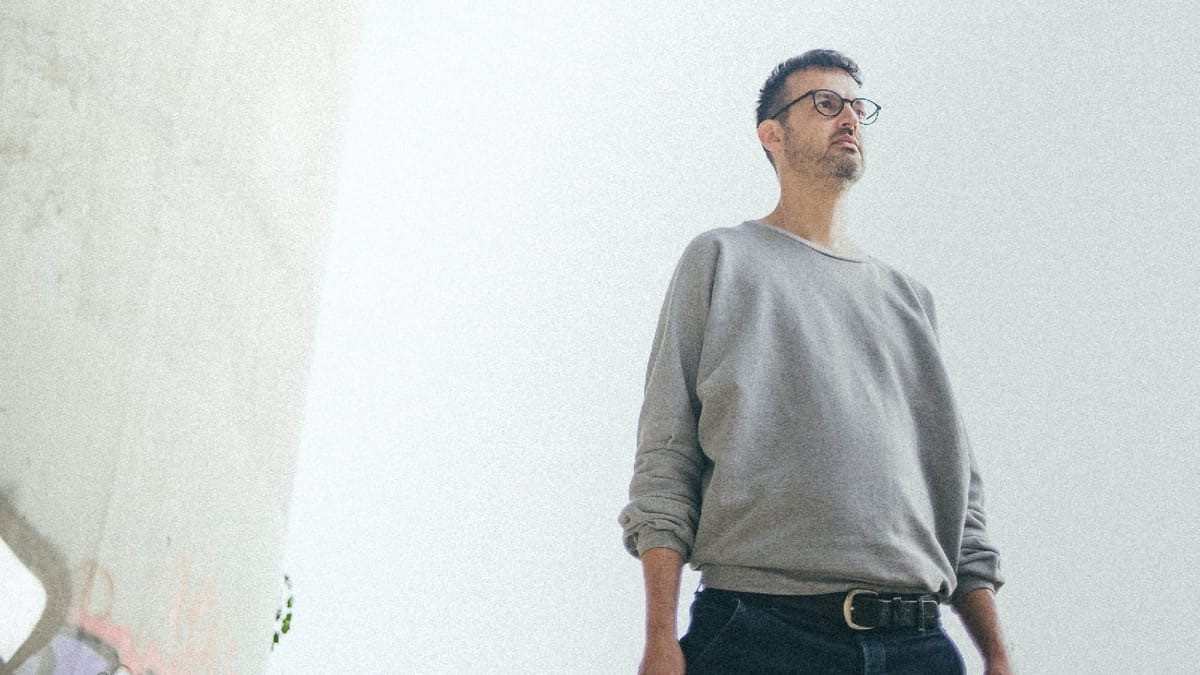
The work of Simon Hafner aka Sun People has been widely regarded for its inimitable takes on jungle and footwork, fascinatingly hybridised with a wide variety of styles like juke, techno, electro, minimal and dub. His deft beat programming, boundless energy and remarkable productive spontaneity has sparked a celebrated discography, with noted releases on dBridge’s Exit Records, Rua Sound, Outlines sub-label Guides plus, Steffi’s Candy Mountain imprint, LXC's Alphacut and Modern Ruin among others. His third EP on Defrostatica After the End will be released in November 2024.
Operating from his home of Graz in Austria, he contributes actively and regularly to the city and the music community within it. From co-running labels (he is also responsible A&R at Defrostatica), organising events, mentoring new artists and more. He emphasises the often forgotten importance of being active within a local music scene, an integral part of Simon's musical existence. It's a role with the underlying aim of contributing to the development and growth of his local environment with an international perspective.
Booga: You just finished producing your EP, After the End, which was your third release with Defrostatica before you went on vacation, how do you feel?
Sun People: I’m trying to give myself quarterly breaks to re-charge, and to experience a bit of a distance from my day-to-day life. This means that I am having as much time as possible offline, to read, to go into a deeper inner reflection process, and to enjoy time with my loved ones. This can simply be spending time at home, or going to the seaside, swimming, walking, eating, enjoying the sun. Simple things.
It seems as if all the EP tracks have titles that fit into a larger picture. What does the title After the End, mean to you?
There are multiple layers to After the End. First it refers to the personal experience of something that you don’t necessarily want to end, ending, and forcing you to go into unwanted and unknown territory; to deal with change as a life-inherent element. But beyond the personal perspective it also describes the state of the world. Like the opening lines of the movie Space is the Place by Sun Ra that says, ‘It’s after the end of the world, don’t you know that yet?’.
We are seeing rising authoritarianism, wars, the ongoing exploitation of human and earth or mineral resources, worldwide inequality and climate catastrophe, which is the result of what Ulrich Brand and Markus Wissen describe as an ‘imperial mode of living’. But as a white person living in Austria, Europe, still one of the richest and safest countries in the world, even if I come from a relatively economically poor background, I have to consider reality on a much wider level. Recently I read an article, New World Disorder by Hannah Black (thanks Rose-Anne) were she writes: ‘No one is inherently safe from the violence of capitalism, and whiteness is a violently upheld dream that safety is real. What once appeared as to-come—the fascist dystopia—in fact lies behind and all around us. Some people are smart or hurt enough to have known since forever how nothing has ever stopped happening, that the genocides and exclusions are ongoing and as urgent as when they were first enacted.’
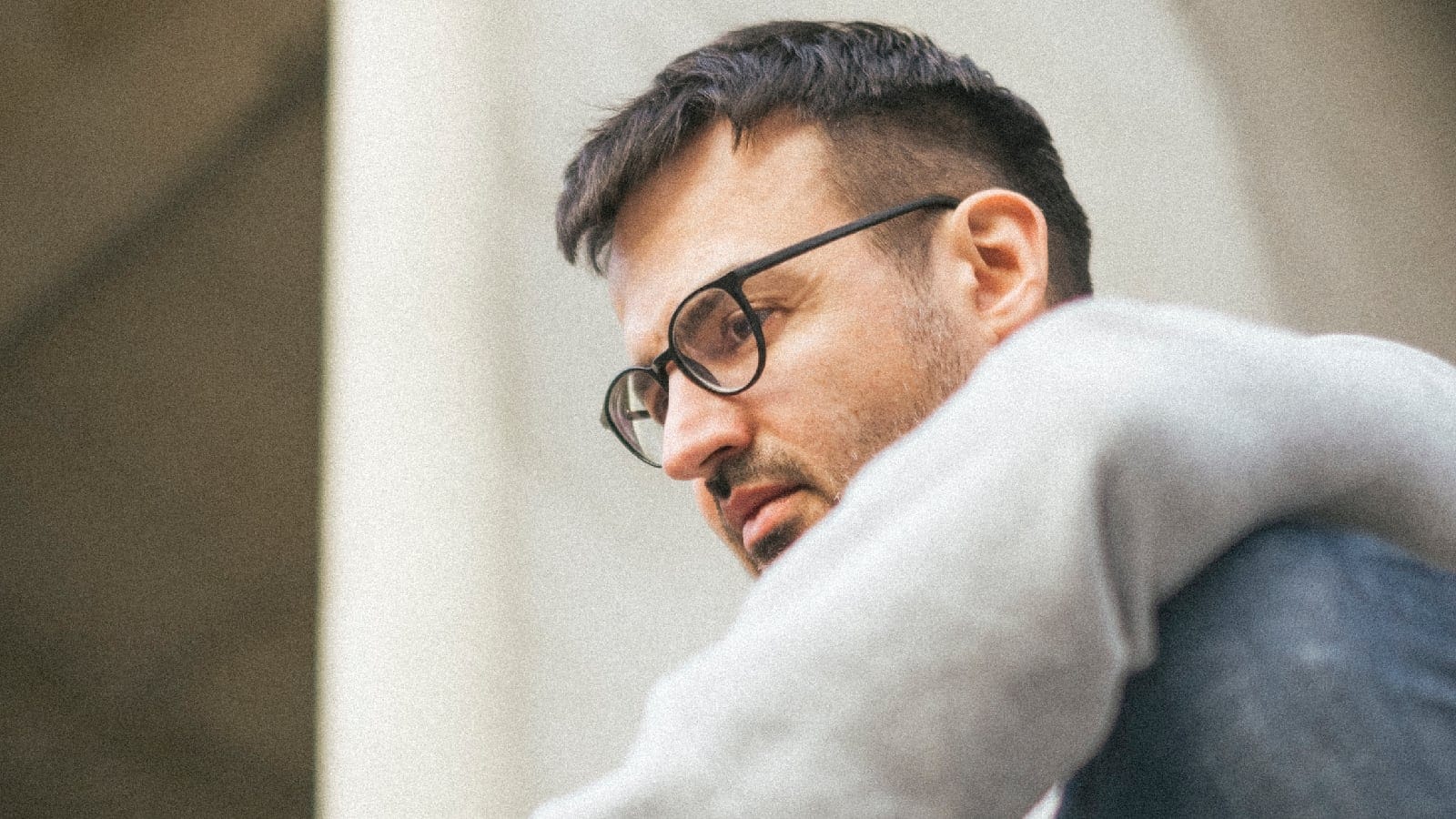
To me, the idea of After the End is a kind of personal reminder to carefully navigate through this world and to constantly find new ways to relate to it. I try to understand contexts and interrelations on an intellectual level and then digest and understand them on an emotional one. For me that’s the base to move Forward and Discover new ways of relating to myself, to others and to the world. For a long period of my life, I was driven by hope, but I learned that, hope is not necessarily a good advisor. Hope often comes from a place of fear, insecurity and the denial of change, hence the title No Hope No Fear.
When I heard Forward the first time, we met in your hometown Graz. We sat at your kitchen table and talked about the future sound of Defrostatica. Is a label sound still possible in this day and age?
I think so. I guess we are talking about an artistic vision in a wider sense of whoever is responsible for selecting the music being released. This means the context you are seeing yourself in, the artists you work with, and the possible directions you want to see being established. And then developing good communication strategies that allow conversations about these ideas to circulate between everyone involved.
As an artist who works on very different projects with different sounds, I want and need to know what a label wants and where they are going, in the sense of their vision.
As an artist who works on very different projects with different sounds, I want and need to know what a label wants and where they are going, in the sense of their vision. This can be very inspiring and often leads to great artistic outcomes.
Your Sub FM radio show archive just had a big anniversary. Two hundred shows over the course of 12 years! What do you enjoy most when you prepare new episodes? On what basis do you choose your guests?
To be honest I don’t celebrate these numbers or milestones very much, even though I'm trying to get better in that respect (laughs). Do I enjoy the preparation for a show? Very often I don’t, because it means a lot of work: two to three days of going through thousands of new releases on various platforms as well as lots of promos to discover the bits that resonate with me, is definitely not always fun. In the end it can be extremely satisfying to connect dots between different genres, tempos and moods. It kind of keeps me going and keeps me hungry to always explore further, and is part of an ongoing search for my own artistic coordination system.
Regarding my guests, they are people whose music taste I admire, and whose production and/or their DJing I also admire, and who fit into this wider musical world that we are all navigating. On top of that, I try to keep a diverse invitation policy. It's the least effort I can make to make the scene more equal.
You say it is satisfying to connect the dots as it motivates you to discover new music, but at the same time it may help listeners to experience musical context, as they are with you on that journey. Do you keep that in mind and do you keep a back channel open so that listeners can share their view?
I’d say the show is mainly one way to display and share an aspect of my own journey and to contextualize it for myself. But even if it’s often stretching out to more leftfield areas, it still has more or less a club environment in mind. So in that sense, as a DJ I definitely have the listeners in mind. But I’m not sure if specific musical contexts have the same importance to listeners, than, let’s say 15-20 years ago. And even back then, for me personally, it was always about building my own and stretching out beyond genre borders. Regarding feedback and conversations about the show, most of that is happening on the Soundcloud comments, private messages and obviously in the live-chat of Sub.FM.
The style you champion for years in the 160 bpm area works surprisingly well in lower tempo ranges as well. Your recent Emotional Distortions EP on Candy Mountain is a revelation! How did Steffi come to ask for the tempo to change and are you thinking of going even lower?
When Steffi approached me, it was mainly because she and Virginia (who run the label together) heard the Transitions EP that was released with Exit Records. Steffi suggested that I might send over some stuff if I ever go into slower tempos with an electro-ish flavour. And as I mentioned above regarding ‘label sounds’, such suggestions from others can spark new creative processes. It was a challenge that I welcomed and that opened my music making process quite a bit.
It’s very similar to what happened around the making of the Joyful Discontent album for Guides/Outlines even though the music sounds totally different. It is about working out appropriate musical ideas that still represent my sound, but stretching out into a different musical universe. I had different monikers in the past that represented different styles or corners but these days I feel a general openness, less restrictions and no need any more to put different aspects into different boxes.
To underscore your passion for lower tempo techno and electro music you recorded two amazing mix sets recently, one for Steffi’s label Candy Mountain and one for Ben UFO’s show on Rinse FM. In the mix for Ben, you connect the dots between 135 bpm techno and 160 bpm footwork so seamlessly. How do you make this work? What do these tracks have in common for you?
I think it's an ongoing evolution of musical taste and mixing styles, and as I said before, building a connection of dots and references. For example, Biome’s Chosen might come from a dubstep background and context but still has so much in common with footwork from Skip Club Orchestra. Or take X-Altera’s Check Out the Bass - it has as much Detroit techno as it has jungle and electro. Classic dub techno from Maurizio or footwork from DJ Fulltono have quite a bit in common. A DJ Manny track can work extremely well with a high-pitched Shed tune. If you play a 3+ hours club set, you can build a longer musical journey but with the limitation of a one hour mix it's a different challenge to make it work. Sometimes it's about finding just two or three tunes that glue the whole thing together. My radio show is really the testing ground for this.
One of my favorite tracks of yours is Never from the Serenity EP on Modern Ruin in 2018. The track ticks calmly like a clock and affirms ‘I’ll never let you down’. The crowning glory, however, is the air horn sample. It gives the relaxed vibe a jungle context, an important reference to your musical background. Which reference was important to you for your new EP?
The tunes are all from different time periods, so there are very different motivations and references behind them. No Fear No Hope was in the late phase of trying to find a more soulful sound that has a bit more of a different beat and snare patterns than your usual footwork tune. Think of a broken beat / bruk on a 160 template. It is very similar to what I tried to do on my 2021 Exit release. After The End is in a very similar vein to Tell Me Something from the Exit 100.1 compilation.
Basically, those two come from the same template and also share some similar sounds. It was probably made in the summer of 2022 when I was looking for more techno orientated tunes at 160 bpm with a bit of a one-chord Shed kinda vibe for my DJ-sets, but couldn't find any and ended up making them myself. If there are no dots to connect, make your own!
Forward is basically me trying to do a minimal techno tune at 160 bpm - and completely failing (laughs). I always liked stripped down minimal stuff like early Robert Hood, and was experimenting with simple, shifting rhythmic patterns. Some of this early minimal stuff is so radical in its approach, it's still mind-blowing. So obviously the tune became less minimal and while having one of my regular listening sessions with my good friend Timo aka Toupaz he encouraged me to go a bit rowdier with this one.
I always liked stripped down minimal stuff like early Robert Hood, and was experimenting with simple, shifting rhythmic patterns.
But there still exists a VIP version with no drum-breaks, no drops and just an ongoing shifting flow of elements. Finally Discover, which was done 2023 in the middle of the process of creating tunes for Candy Mountain.
I was fueled with this freedom that I mentioned above and just wanted to create something that does not sound like anything else but still kind of works in that footwork/jungle/techno world. Is it electro-funk footwork? I have no idea how to name it (laughs). So, all together very different approaches but I think my general driving force behind all of them is to channel a wide spectrum of musical influences and make something that’s not existing yet. Like tunes that kind of create their own genre with still being connected to existing ones. It's an idea that keeps me excited, curious and going.
What kind of phase do you love most when you make new music and which part do you loathe?
Some projects are basically done without any big challenge - like my album Joyfull Discontent for Guides/Outlines which was pure flow from the first bit to the finished premaster. Others can take months or even years.
Maybe the most enjoyable time at the moment is when doing field recordings or doing weird sound experiments with my brothers or alone. Like playing around with some kitchen tools after dinner and then going on the balcony and making them blend into the environmental sounds in the backyard, the city hum, the sounds from the nearby train station and record all of that. It sounds a bit silly, but I do feel complete freedom in these moments. It's lots of fun but by recording all of it in the moment, the fun also keeps a certain tension that somehow makes it into a serious endeavor.
How do these free-spirited moments turn into tracks? Do you try to re-create rhythm patterns you did record?
Some of these recordings end up in tunes as textures, or it's just single sounds that I take out of it and then process them further. But they don’t need to. I think it's not necessarily about finding a way to ‘use’ all of it. It's really about the experience and the freedom that can build through it and then indirectly influences other works.
Tell us about the job you have in Graz and how it helped you to steer your own musical career.
I’m self-employed and do a lot of different things to complement the income from the music projects. E.g. I’m on the board of a regional special interest group for cultural initiatives that helps to better the working conditions. That means political work, counseling, mentoring, funding advice, as well as helping organizations and people within the cultural context to make their life a little bit easier. There were quite some challenges to overcome in regards of the professional aspects of my journey as an artist. So, it just makes sense to me to use those experiences and knowledge to help others getting forward with their own projects. And on top of that, working in that field also keeps me in touch with all types of different artists and groups of activists. I think it's necessary to continue to invest into the field of culture in one or the other way. It’s the glue that can hold a society together and can enforce respect and mutual understanding.
There are rumors that you'll start a new endeavor next year, what can you tell us about it?
It’s still in an early stage but I will start a new label. It will be called All Things and will mostly feature my own music, side projects and collaborations. I will not stop working with other labels because of the aforementioned reasons but I need an outlet for certain projects and I want to give it a proper label image. The name and the basic idea is existing for years and it just feels right to do it now and the whole process to set it up motivates and inspires me also artistically.
Thank you for your time. Make sure to follow Sun People.

